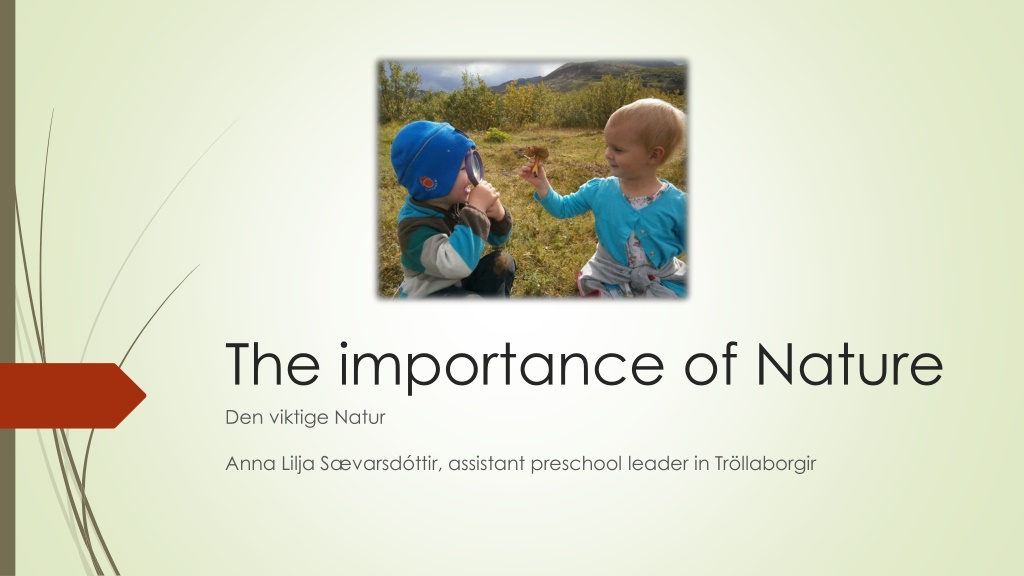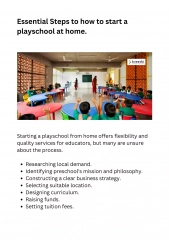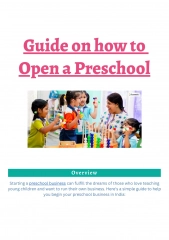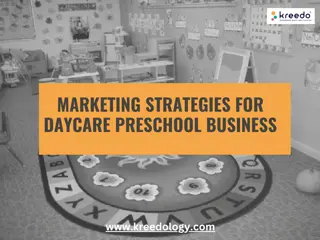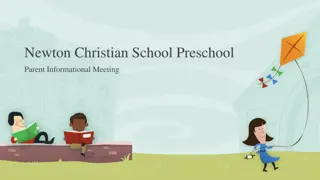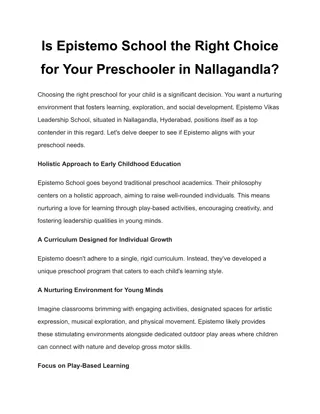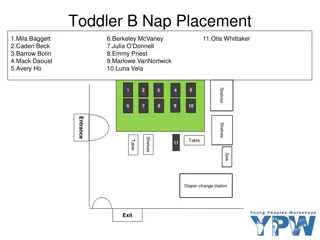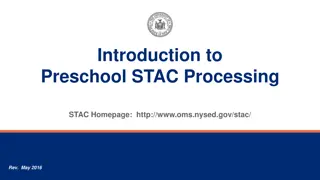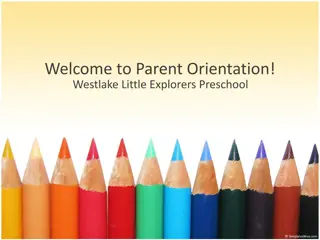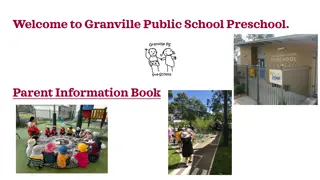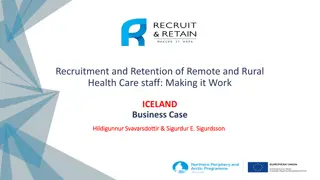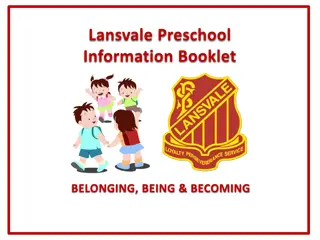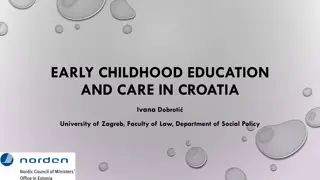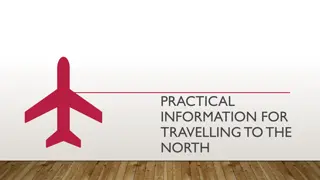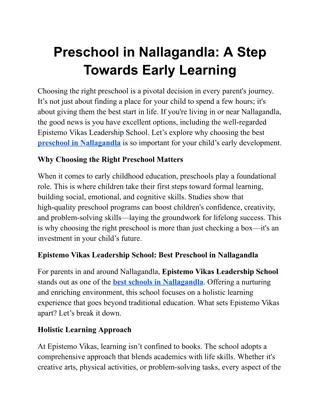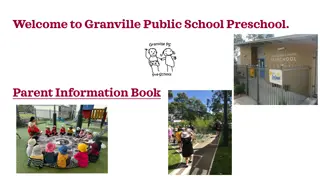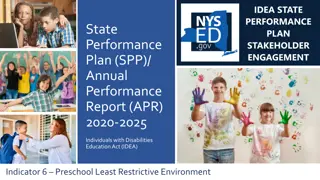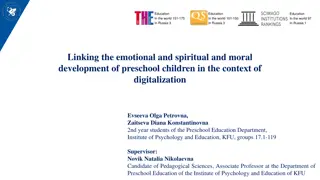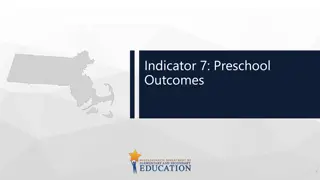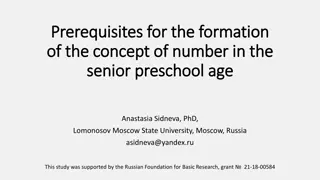Exploring the Importance of Nature in Preschool Education in Akureyri
Anna Lilja Svarsdóttir, an assistant preschool leader, shares insights on how preschools in Akureyri incorporate nature into their educational practices. From outdoor play areas to field trips, the focus is on integrating nature into everyday learning experiences. Sustainability and the link between environment, society, and education are key aspects emphasized in preschool curricula in Iceland.
Download Presentation

Please find below an Image/Link to download the presentation.
The content on the website is provided AS IS for your information and personal use only. It may not be sold, licensed, or shared on other websites without obtaining consent from the author. Download presentation by click this link. If you encounter any issues during the download, it is possible that the publisher has removed the file from their server.
E N D
Presentation Transcript
The importance of Nature Den viktige Natur Anna Lilja S varsd ttir, assistant preschool leader in Tr llaborgir
2 Hi! My name is Anna Lilja and I work currently in Tr llaborgir preschool in Akureyri. In two weeks I will change schools and go to I av llur preschool as a principal. In this workshop we get insight into how preschools in Akureyri work with and in nature. We can see examples of fun outdoor areas, research ideas, field trips and larger / longer trips, like the oldest children's graduation trips. We also see the ideas of teachers who use nature for teaching in synergies such as literacy and mathematics. Anna Lilja 2018
3 Akureyri; facts and figures Akureyri consists of three settlements; the town of Akureyri, Hr sey and Gr msey. Hr sey is an island that lies in the middle of Eyjafj r ur, while Gr msey is an island that lies north of Eyjafj r ur and the Arctic Circle passes through the island. https://www.youtube.com/watch?v=080yUIby1_4 Anna Lilja 2018
4 Outdoors and play are intertwined in the preschool education of the northern countries. This is also a fact in Iceland and our hometown Akureyri. Here all schools have a good outdoor area and field trips, science and nature exploring are an essential method in preschool education. The Icelandic National Curriculum Guide deals with sustainability and science as a basic element of education in preschools. It also states that the preschool education should take into account the pre- school environment and the community in which it is located. The school should emphasize daily exercise and physical education that is the foundation of physical and mental well-being. Preschool teachers must also ensure that children have a wide variety of play based opportunities outdoors as well as indoors. Anna Lilja 2018
5 Sustainability concerns the interplay of the environment, economy, society and welfare. Sustainability includes respect for the environment, sense of responsibility, health, democratic working methods and justice, not only at the present time but also for future generations. Therefore it is unthinkable to support human rights without simultaneously espousing sustainability and balanced social development. Additionally, sustainability is dependent on the equality of social groups. Democracy and human rights, and health and welfare are thus an integral part of sustainability and, at the same time, independent fundamental pillars of education. Education towards sustainability, equality, democracy and human rights therefore aims at children and youth understanding society as it is and has developed (page 15-16) Anna Lilja 2018
6 Education towards sustainability aims at making people able to deal with problems that concern the interaction of the environment, social factors and the economy in the development of society. The most common understanding of the concepts sustainability and sustainable development involves that we leave the environment to our descendants in no worse condition that we received it, and that we endeavour to meet the needs of the present without reducing the possibilities of future generations to meet theirs. It is important in educational work as it stresses that little things mean a lot, and that it is not necessary to wait for big changes to be able to rejoice in the smaller. Anna Lilja 2018
7 The environment and thereby nature surround human society. Sustainable development cannot take place, except within the limits that the ecosystems of the earth draw. Therefore understanding of these limits, in addition to the processes, laws, and cycles of nature, is an important basis for successfully working according to the ideals of sustainable development. Thus children have to know, understand and respect nature, both because of its intrinsic value and because of the service it renders mankind. Environmental protection, climate change and biodiversity are examples of tasks to be tackled. Anna Lilja 2018
From a social perspective, this ideology concerns equality. In order to obtain equality, democratic methods have to be employed, the diversity of mankind respected and multiculturalism ensured. Sustainability is a prerequisite to understand the importance of one s own welfare and that of others. 8 The economic factor of sustainability is closely related to both the environmental and social factors. The economic system of each society plays an important role when it comes to using natural resources in a sensible manner and dividing them fairly. Understanding one s own ecological footprint, and the ecological footprints of societies and nations, is conducive to sustainability and moderation. Consumer education and financial literacy are therefore an important prerequisite for being able to assess our needs now and in the future. Anna Lilja 2018
9 Education for sustainability encompasses creating a society of collective responsibility where individuals develop as active citizens, conscious of their own values, attitudes and feelings for global impact and equality of all the inhabitants of the earth, for nature and the environment, for democracy, human rights and justice, for equality and multiculturalism, for welfare and health, and for economic development and vision of the future. Education for sustainability further encompasses that in their studies children and youth come to grips with diverse problems and points of controversy. Teaching and working methods of the school are to be interwoven with the idea that the aim of education is capability for action. This involves training in democratic working methods and that children and youth are trained to be interested in and want to take part in society (page 17-19) Anna Lilja 2018
Nature offers a variety of materials and abundant opportunities for exploration and discovery (page 40) 10 From early on children use various methods to explore and understand their environment. They watch, listen, touch, taste, handle, classify, compare, examine and draw conclusions. Young children learn through interactive relations with their environment. Conditions for new meaningful experience should be based on the children s experience of their environment. Emphasis should be put on continuity of the tasks that are being worked upon each time with, for example, nature and society, various natural phenomena, science and technology. Anna Lilja 2018
11 The role of the preschool is to encourage children s intellectual curiosity by observing and listening to what children are engaged in and thus try to grasp how they think and understand. Their introduction to new materials and ideas should be based on this. They are asked questions that make them think, for example, about sustainability and sustainable development. Children explore and discuss the context of the phenomena in their environment. Children s curiosity, reflection and speculations should be encouraged and prompt them to ask questions and seek a variety of solutions. At the same time, scientific thinking should be encouraged and children encouraged to discover relations, cause and effect and to understand ideas and concepts. An effort should be made to teach children to respect nature and their environment and to give them opportunity to experience and enjoy. Anna Lilja 2018
Preschools are to create circumstances where children have an opportunity to work and reflect on: 12 Their conduct and respect for natural and manmade environment. towards sustainable development. How their ecological footprint and that of the local community can work Natural cycles and phenomena. Various natural resources. Exploitations of natural resources. Information dissemination, presentation and value of information. Mathematical tasks, such as, numbers, signs and patterns. Living beings in the environment and their ways of life. The nature of various forces and their manifestation in the environment. The nature of various substances and objects. The potential and limitations of technology. Space, distances and directions (page 44) Anna Lilja 2018
13 So how do we work and implement So how do we work and implement those items in our daily work? those items in our daily work? Here are some examples and pictures from preschools in Akureyri. Anna Lilja 2018
